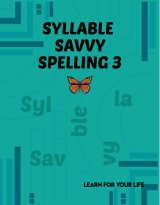For the Love of Liberty - Isaiah(13)
by Isaiah
(Chile)
It was 9 AD. The thus far unconquerable Romans were seeking to expand Roman law, culture, and power. West of the Rhine, one of the longest rivers in Europe, the inhabitants had been subjected, but the barbarous Angles, Saxons, and Jutes east of the river had remained free up to this time to pursue their decentralized Teutonic laws, institutions, and way of life.
Nevertheless, in 9 AD the Romans were preparing to attack. Neither side probably realized that the Battle of Teutoburg Forest would decide the course of Western law and civilization for a millennia to come. It was time!
Under the command of General Publius Quintilius Varus, one of the most important senators of his age and a personal friend of Caesar Augustus, three Roman legions advanced to Teutoburg Forest. Herman, later known as the Liberator, was a German and a trained Roman soldier, acquainted with the Roman tactics. Having learned of their plans, Herman left the Roman company and gathered an army of Germans to ambush the Romans on their march. Unaware of Herman's move, General Varus advanced into the forest, not even taking enough caution to send scouts ahead, and thus nearly assuring his own destruction.
In 9 AD, Teutoburg forest was large, with only some half-formed paths going through it. The paths were narrow, allowing about eight soldiers to walk abreast. Knowing that the Roman solders could not properly fight on such terrain, Herman decided upon harassing them in the forest. A part of the forest was covered with a large bog. Some German soldiers under Herman blockaded the path that ran alongside the bog in case the Romans were to advance on that side of Teutoburg Forest.
Upon entering the Forest, a providential downpour occurred, and while the heavily armed Roman legions and their wagons were bogged down in the mud, Herman and his lightly armed warriors attacked. The attack began with a bombardment of thousands of spears hurled through the air. As the soldiers who were attacked stopped marching to defend themselves, those behind unknowingly kept marching causing a disastrous, deadly domino effect. After the chaos ended, three Roman legions lay wounded, dead, and dying. This battle clearly showed the world that the Roman Legions were not unconquerable, but, more importantly, it let the Angles, Saxons, and Jutes continue their decentralized laws, institutions, and way of life. In later years, after the Roman Legions evacuated Great Britain, these tribes immigrated to England and, afterwards many came to North America, bringing with them their love for liberty. All generations may look to the Battle of Teutoburg Forest in 9 AD led by Herman the Liberator as encouragement to fight tyranny and know that liberty is worth the cost.
Comments for For the Love of Liberty - Isaiah(13)
|
||
|
||
About Our Site
Hands-On Learning












